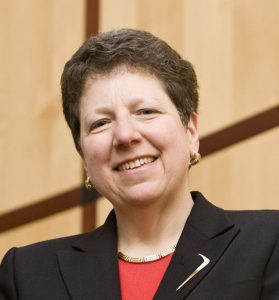Endocrine Society members Barbara B. Kahn, MD, Mitchell A. Lazar, MD, PhD, and Christopher K. Glass, MD, PhD, have been elected to the National Academy of Sciences (NAS), which recognizes achievement in science and provides science, engineering, and health policy advice to the federal government and other organizations.

Kahn, an international leader in the field of diabetes, endocrinology and metabolism, is vice chair for research strategy in the Department of Medicine at Beth Israel Deaconess Medical Center (BIDMC) and the George R. Minot Professor of Medicine at Harvard Medical School. In a career spanning nearly 30 years, she has made landmark contributions to the field of metabolic research, uncovering the complex mechanisms of insulin action, insulin resistance, and Type 2 diabetes.
Kahn joined the Division of Endocrinology, Diabetes and Metabolism at BIDMC in 1986, and served as chief of the Diabetes Unit from 1990 to 2000 and Division Chief from 2000 to 2011 before becoming vice chair of research strategy in BIDMC’s Department of Medicine. She has trained numerous outstanding scientists, who have gone on to successful careers in investigation worldwide.

His groundbreaking research has uncovered genetic and epigenomic mechanisms by which the environment interacts with the genome to regulate circadian rhythms and metabolism, and how these impact the epidemics of obesity and diabetes. He has received awards from numerous international societies and universities, and has been elected to the American Society for Clinical Investigation, the Association of American Physicians, the National Academy of Medicine, and the American Academy of Arts and Sciences.

His research focuses on how genes are turned on and off in macrophages, a type of immune cell, and how that influences macrophage development and function. His lab works to understand how the normally beneficial actions of the macrophage are subverted in inflammatory diseases, such as atherosclerosis, diabetes and neurodegenerative disease. Their studies have uncovered basic mechanisms that regulate both protective and disease-causing functions of macrophages found in atherosclerotic lesions, fat tissue and the brain.
In addition, Glass’ team recently discovered how small genetic differences in regions of the genome that do not code for proteins can nonetheless influence the extent to which genes are turned on or off among different individuals and thereby influence risk of disease. These findings have implications for improved prediction, diagnosis and treatment of a broad spectrum of human diseases.
Kahn, Lazar, and Glass join 84 new members and 21 foreign associates recently elected to NAS in recognition of their distinguished and continuing achievements in original research. The NAS is a private, nonprofit institution that was established under a congressional charter signed by President Abraham Lincoln in 1863.

